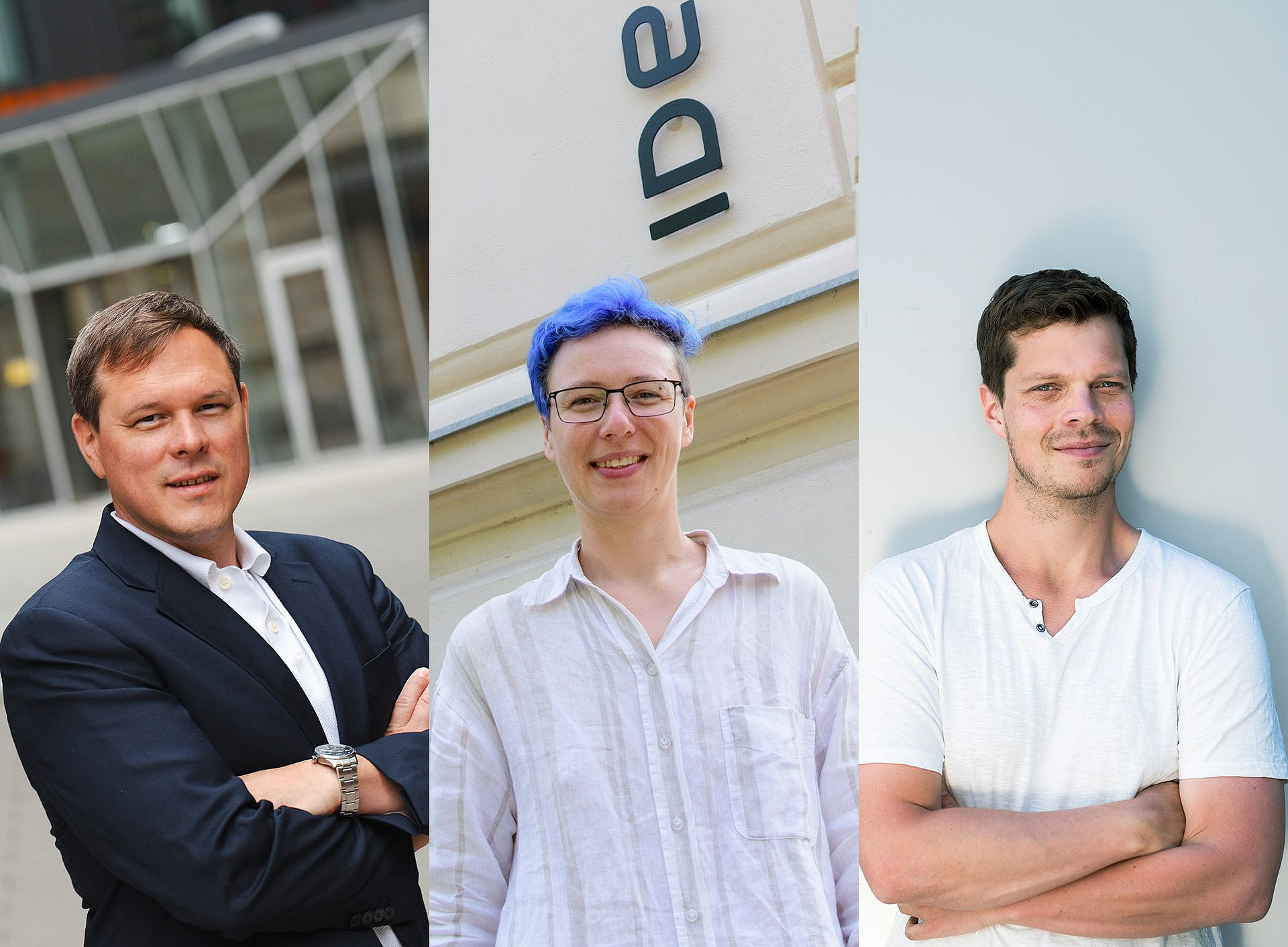The European Research Council's Starting Grants, each worth €1.5 million, are among the most prestigious funding programmes for young scientists. Today, 494 Starting Grants were announced across Europe. The funding – totalling almost €780 million – supports cutting-edge research in a wide range of fields, from life sciences and physics to social sciences and the humanities. It helps researchers at the beginning of their careers to launch their projects, build their teams and pursue their most promising ideas.
The University of Graz has been awarded three research projects. The projects range from ice cores and cell receptors to social media algorithms. ‘Three ERC Starting Grants are an accolade for the University of Graz and an endorsement of our research strategy,’ says Rector Peter Riedler. ‘They demonstrate our strong position in the European competition. Our goal is to attract the best minds from the various fields of science, to promote our own young researchers and to educate the best graduates in the respective subjects.’
Chemical time travel
With his ERC Starting Grant, chemist David Clases is going on a journey through time to explore the world and its changes on the basis of structures that are up to 10,000 times smaller than a grain of sand. He is using a process he developed himself to track down nanoparticles in the environment. ‘Our Earth's history is characterised by tiny structures that play an essential role in the formation of ecosystems and climatic conditions, as well as for us.’ These particles can even be tracked retrospectively. ‘For example, as the smallest dust particles in the eternal ice,’ the scientist explains.
Analyses in individual layers of ice can provide insights into past climate conditions, natural events and human emissions. In order to look into the past, Clases examines tiny particles in ice cores from the polar ice caps and the Alps at the Institute of Chemistry. This provides new insights into their natural cycle over a period of more than one hundred thousand years.
To carry out these investigations, he combines three technologies: He connects element mass spectrometry to both an optical trap and spectroscopic analysis techniques developed by the Med Uni Graz spin-off ‘Brave Analytics’. David Clases: ‘This allows us to examine the particles in unprecedented detail.’
Cell microprocessors
The second Starting Grant holder is working on the microprocessors of our cells: the so-called membrane receptors that receive, process and transmit signals, thereby controlling vital processes. The largest and most important group of these receptors are the G-protein-coupled receptors (GPCRs), which regulate the effect of hormones such as adrenaline. ‘GPCRs ensure that our heart beats faster when we are under stress, that caffeine makes us more alert and that we perceive the scent of a flower,’ explains Georg Krainer from the Department of Biophysics at the Institute of Molecular Biosciences at the University of Graz.
While the molecular components of these ‘GPCR circuits’ are already known, their exact mode of operation remains a mystery. ‘How does a receptor decide which signal from the outside world it has to transmit to which receiver inside the cell?’ wonders Krainer. He is convinced: ‘There must be an inner logic behind this that we have not yet decoded.’
Krainer now wants to crack the GPCR code with the help of the ERC Starting Grant, one of the most prestigious research grants in Europe. He will use state-of-the-art technologies such as single-molecule spectroscopy and microfluidics to decode the logic behind GPCR decisions. ‘The findings could revolutionise the development of new medical applications,’ says Krainer, “because GPCRs play a central role in many diseases.” For example, drugs for heart disease, cancer and diabetes target these membrane receptors to regulate disturbed processes in the human body. “Our goal is to develop molecular tools that enable us to specifically influence these receptors and thus improve the effectiveness of therapies,” emphasises Krainer.
Democratic algorithms
The ERC Starting Grant for Jana Lasser comes at just the right time in the 2024 election year. She is looking for ways to make social media work better. ‘The goal is to create algorithms that enable us to have better discussions with each other instead of just getting annoyed.’
‘This is not about censorship,’ Lasser emphasises. ‘Currently, algorithms tend to ensure that the content that gets the most attention and the most excitement is the content that gets the most clicks.’ A video of an extreme conspiracy theory will therefore tend to be shown to many more people than a well-researched news video. One idea for a change would be to use machine learning to check posts for hateful language or polarisation and to give them a little less reach accordingly, or to give a bonus to news sites that work according to journalistic standards. ‘This doesn't mean deleting posts, but rather redistributing attention.’
Lasser is taking a practical approach. She wants to develop and test real alternatives on digital twins of social media like X or Reddit. ‘We can try out and improve our ideas on these copies. Based on this knowledge, we can then make recommendations to politicians on how the big social media platforms should adapt their algorithms.’
Promoting young talent
‘The University of Graz is dedicated to research that aims to make tomorrow's world a better place,’ says Joachim Reidl, Vice-Rector for Research. ’In doing so, we pay particular attention to the promotion of young scientists. The recent award of three ERC Starting Grants at once is proof of the sustainable success of this strategy.’
‘And as a general university, we also rely on the use of state-of-the-art technologies,’ emphasises Markus Fallenböck, Vice-Rector for Digitalisation. ’These include experimental setups in the fields of chemistry and biophysics as well as the broad field of artificial intelligence and society. In this area, we are leading in research and teaching throughout Austria.’
